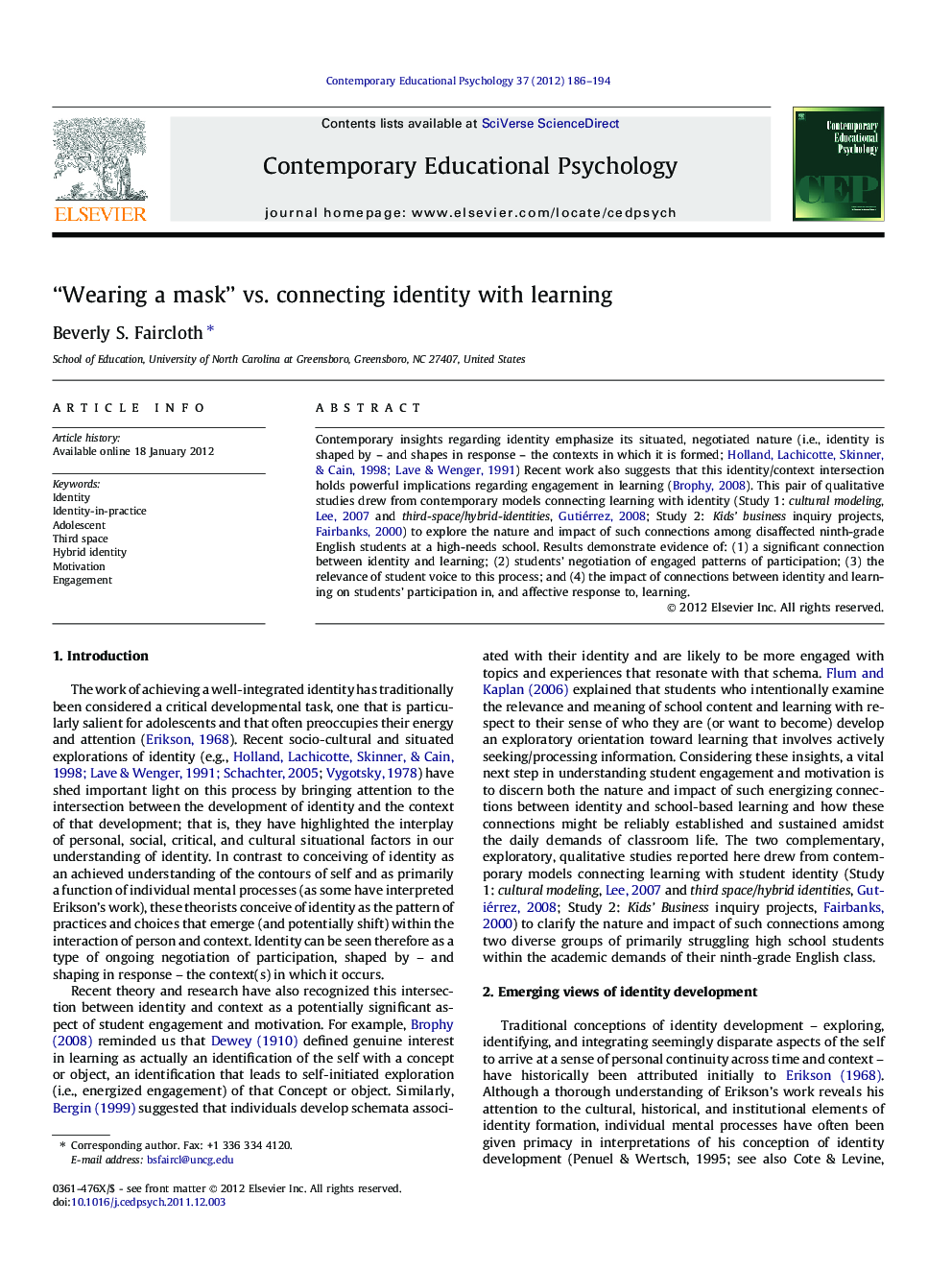| Article ID | Journal | Published Year | Pages | File Type |
|---|---|---|---|---|
| 352657 | Contemporary Educational Psychology | 2012 | 9 Pages |
Contemporary insights regarding identity emphasize its situated, negotiated nature (i.e., identity is shaped by – and shapes in response – the contexts in which it is formed; Holland et al., 1998 and Lave and Wenger, 1991) Recent work also suggests that this identity/context intersection holds powerful implications regarding engagement in learning (Brophy, 2008). This pair of qualitative studies drew from contemporary models connecting learning with identity (Study 1: cultural modeling, Lee, 2007 and third-space/hybrid-identities, Gutiérrez, 2008; Study 2: Kids’ business inquiry projects, Fairbanks, 2000) to explore the nature and impact of such connections among disaffected ninth-grade English students at a high-needs school. Results demonstrate evidence of: (1) a significant connection between identity and learning; (2) students’ negotiation of engaged patterns of participation; (3) the relevance of student voice to this process; and (4) the impact of connections between identity and learning on students’ participation in, and affective response to, learning.
► Adolescent identity was explored in relation to engagement in learning. ► Study situated among struggling students in high needs, low performing school. ► Identity was demonstrated to be situated, negotiated, and anchored in practice. ► Negotiating meaningful identities-in-practice clearly supported engagement. ► Participation in learning and developing identity are reciprocal tasks.
